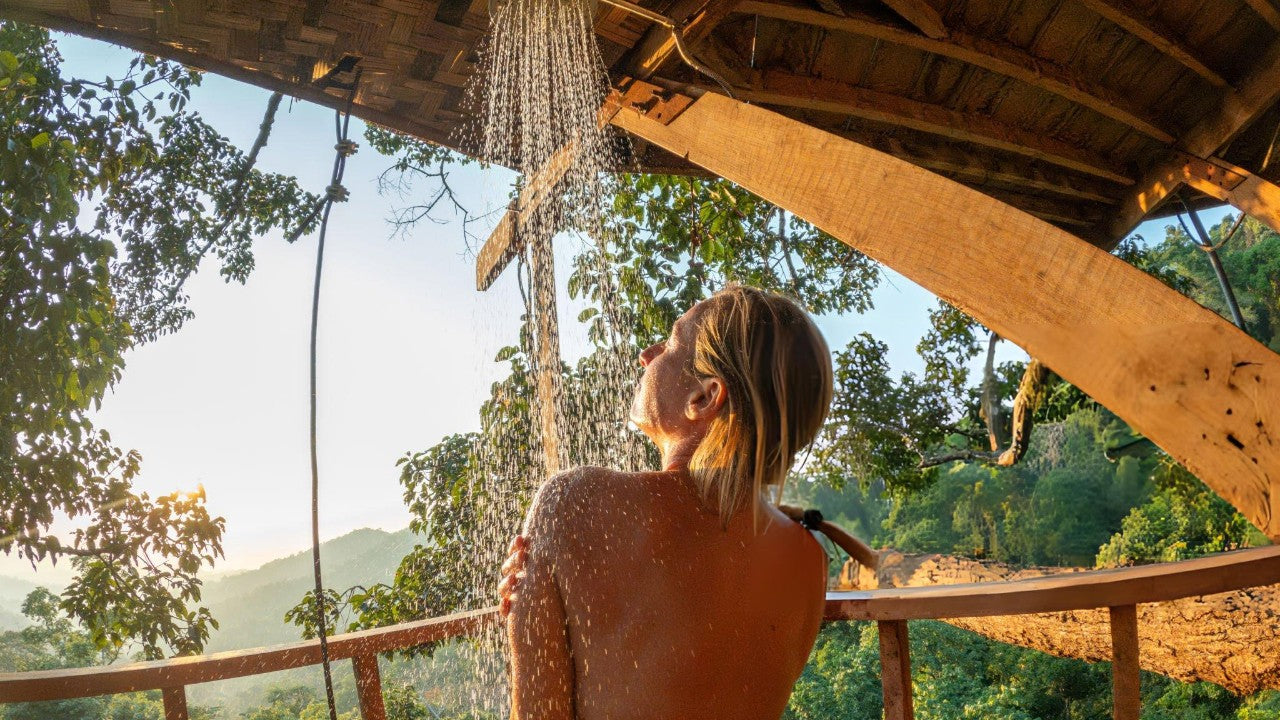In recent years, more and more people have chosen to live off the grid. This shift stems from people's desire for self-sufficiency on the one hand, and also reflects people's growing awareness of environmental protection and sustainable development on the other. More importantly, off-grid living reduces energy costs, brings people closer to nature, and allows people to experience a simpler and purer lifestyle.

Why choose off-grid living?
- Pursuit of self-sufficiency
Off-grid living frees people from dependence on utilities by using renewable energy sources such as solar and wind power, providing greater freedom and autonomy. - Reduce energy costs
As energy prices rise, many people turn to off-grid solutions to reduce electricity and gas bills, making it a cost-effective long-term option. - Environmental awareness and sustainability
People who are environmentally conscious tend to use renewable energy to reduce carbon emissions. Off-grid living is in line with green living principles and promotes a more sustainable lifestyle. - Escape from urban stress and embrace nature
Off-grid homes are usually located in rural areas, forests or other natural environments, allowing people to escape the hustle and bustle of urban life and enjoy a quiet, simple lifestyle. - Technological advances make off-grid living easier
Modern technologies such as efficient solar panels and portable gas water heaters make off-grid living more achievable than ever before. - Emergency preparedness and safety
Some people choose an off-grid lifestyle to prepare for unexpected situations such as power outages or energy crises, ensuring that essential supplies are uninterrupted. - Minimalism and a personalized lifestyle
Off-grid living often goes hand in hand with minimalism, reducing reliance on material possessions and improving quality of life. - Rising housing costs and the tiny house movement
Off-grid dwellings, such as tiny houses and mobile homes, are often more affordable than traditional housing, offering innovative solutions to housing challenges.
How to ensure reliable hot water for off-grid living?
A common challenge of off-grid living is ensuring a reliable supply of hot water. Whether you live in a remote country cabin, a cozy cabin or an eco-friendly tiny house, hot water is essential for comfort and hygiene.
In this guide, we explore practical, energy-efficient and sustainable hot water solutions for off-grid living in the UK.
1.Why choose gas?
For off-grid homes without reliable electricity, gas water heaters provide instant hot water without consuming precious energy. These heaters typically run on propane or butane cylinders, which are easy to buy and store.
Best for: Camping setups, tiny homes and cabins.
Recommended options: Consider lightweight, easy-to-install models suitable for outdoor use, such as the ThermoMate Portable Gas Water Heater - AZ132. Measuring 34 x 29.5 x 12 cm and weighing just 4.5 kg, it's perfect for off-grid showers and dishwashing.
2.Why solar?
Solar water heating panels capture sunlight and convert it into heat, which heats water stored in a tank. Despite the unpredictable weather in the UK, modern solar systems work effectively even on cloudy days.
Best for: Permanent off-grid homes with space on the roof or ground to install solar panels.
Pro tip: Pair a solar water heater with a backup system, such as a gas or wood-fired water heater, for those long winter days.
3. Why choose wood?
If you have a steady supply of firewood, a wood-burning stove with a back boiler can heat your home and water at the same time. These systems are highly sustainable and integrate well with existing heating installations.
Best for: Rural off-grid cabins where local firewood is available.
Bonus: Maximizes heating efficiency during cold seasons.
4. Why choose gravity-fed water systems?
These systems use natural gravity to deliver water from an elevated storage tank to the tap or shower - no electric pump required.
Best for: Off-grid homes on slopes or with elevated water storage.
Pro tip: Combine a gravity-fed water system with solar heating for a completely off-grid hot water solution that requires no electricity.
5. Why choose LPG boilers?
Similar to conventional boilers, but powered by liquefied petroleum gas (LPG), they provide reliable, on-demand hot water to homes without a mains gas source.
Best for: Large off-grid homes that need constant hot water for multiple taps or bathrooms.
At Last
Choosing the right hot water solution for your off-grid home in the UK depends on your energy source, budget and lifestyle. Often, combining solar heating with a system such as a gas backup system can ensure year-round hot water.
Are you looking for a reliable portable gas water heater for off-grid living? Check out the ThermoMate Portable Water Heater.

